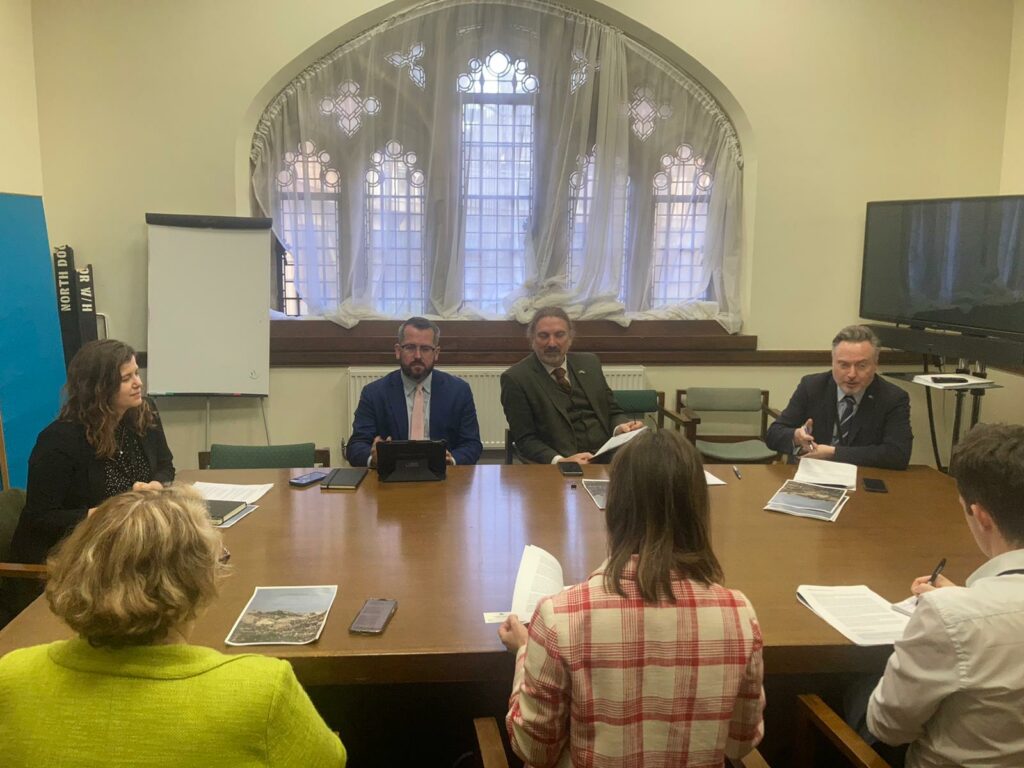How a future independent Scotland would conduct conflict and protect civilians

The newly-launched paper dictates how a future independent Scotland would conduct conflict and protect civilians before, during, and after Scottish operations.
It includes a pledge to introduce oversight of special forces, a strong focus on the importance of tracking civilian harm and being transparent about the findings, as well as a commitment to limit the use of explosive weapons in populated areas.
As SNP Spokesperson for Foreign Affairs, Alyn Smith MP said during the launch, “making these points isn’t just about an independent Scotland but it’s about what we can all do to get the world to a better place than where we are now. The protection of civilians needs to be higher up the agenda.”
The SNP currently controls Holyrood, the devolved Scottish parliament, and is the third largest party in the UK national parliament. It advocates for an independent Scotland and is campaigning for a fresh Scottish independence referendum in the coming years.
A small, but growing number of countries have declared civilian harm mitigation policies. In response to civil society and media pressure, the United States recently rewrote its entire policy to try and reduce the number of civilians it kills. The Netherlands is undergoing a similar process through its Roadmap Process.
Yet the UK has not kept up with allies and lacks a detailed, transparent policy on how it will mitigate harm, and respond when it does occur. With this paper, the SNP distances itself from this approach. As well as dictating how a future independent Scotland would engage in conflict, the policy also outlines the key beliefs of the SNP in regard to how the UK should fight wars. These include a firm commitment to monitoring the civilian impact of conflicts, as well as to transparency about where and when strikes are committed.
It also commits the party to a UN-backed declaration to limit the use of explosive weapons in populated areas, which disproportionately kill civilians who make up more than 90% of those killed when such weapons are used. Last week, delegates from over 80 countries, including the US and the UK, signed an agreement committing to limit their use in Dublin.
🌎Today @ChrisLawSNP, @AlynSmith & I have published a new policy paper on the protection of civilians in conflict. UN Security Council Resolution 1265 was adopted more than 20 years ago, but the failure to protect civilians in conflict is stark. The world needs a fresh approach. pic.twitter.com/HNJDxClzs8
— Stewart McDonald (@StewartMcDonald) November 22, 2022
Airwars coordinated the extensive civil society input into the policy, ensuring that each section was written – and reviewed – by experts on the respective areas covered in the paper, such as women, peace, and security, climate change and atrocity prevention.
“With the release of their paper, Scotland is joining others in setting a new standard for how to protect civilians caught in conflict,” said Megan Karlshoej-Pedersen, Policy Specialist at Airwars. “The policy is unique in the extent to which it has allowed for meaningful civil society engagement, and its focus on civilian harm tracking is a nod to the vital importance of acknowledging when harm has occurred and learning important lessons.
While the ongoing war in Ukraine has brought civilian harm to the forefront of news outlets and political debate, such harm is not new. Over the last eight years, the US-led coalition against ISIS in Iraq and Syria caused 8,197–13,252 deaths, yet contributors to the coalition have all failed to account for these. To date, the UK acknowledges only a single civilian casualty from its own contribution. With their new paper, SNP are outlining that an independent Scotland would distance itself from this approach and instead become a leader on the protection of civilians.
Read the full policy approach here.